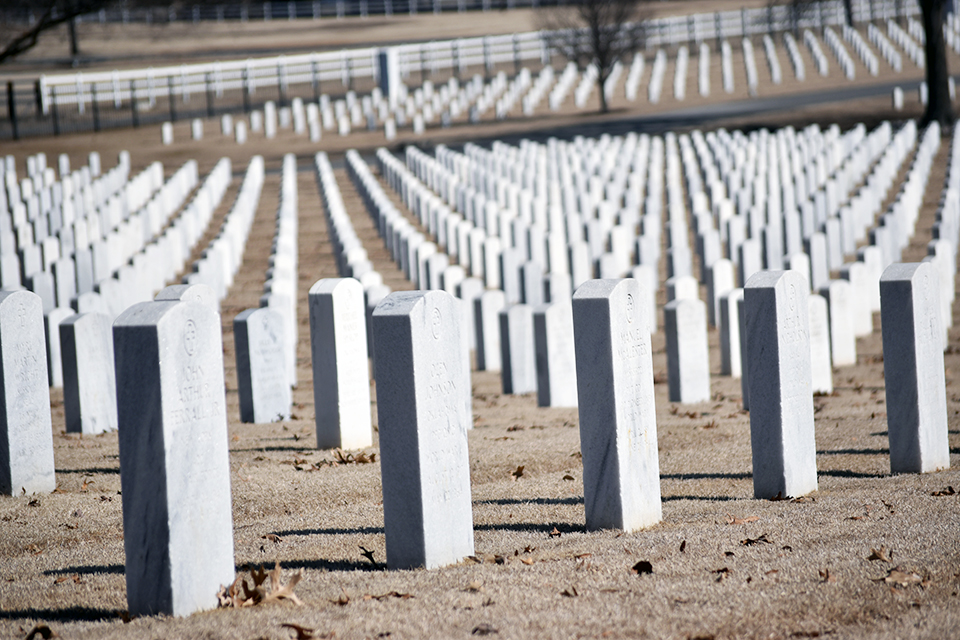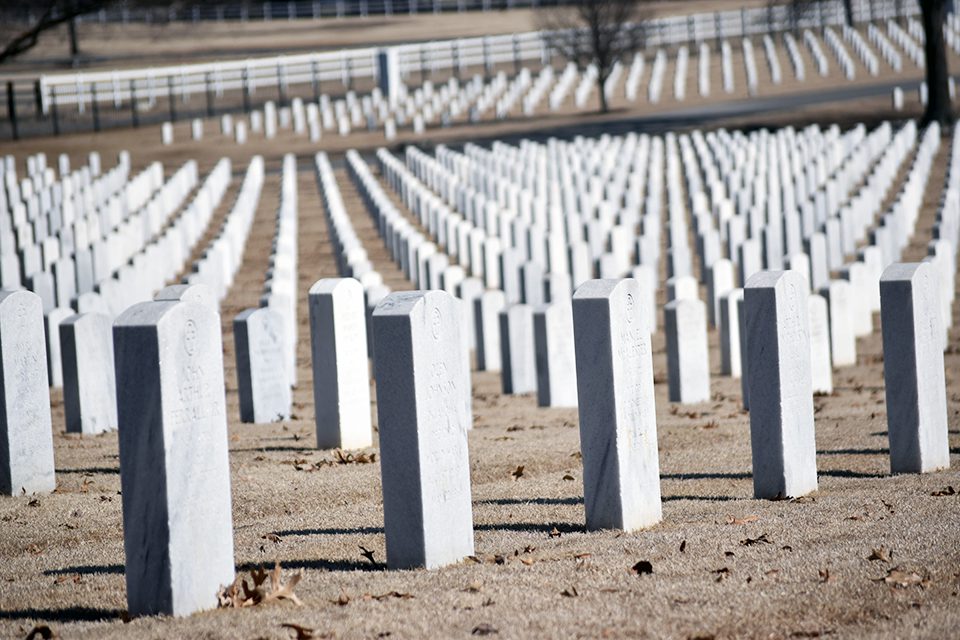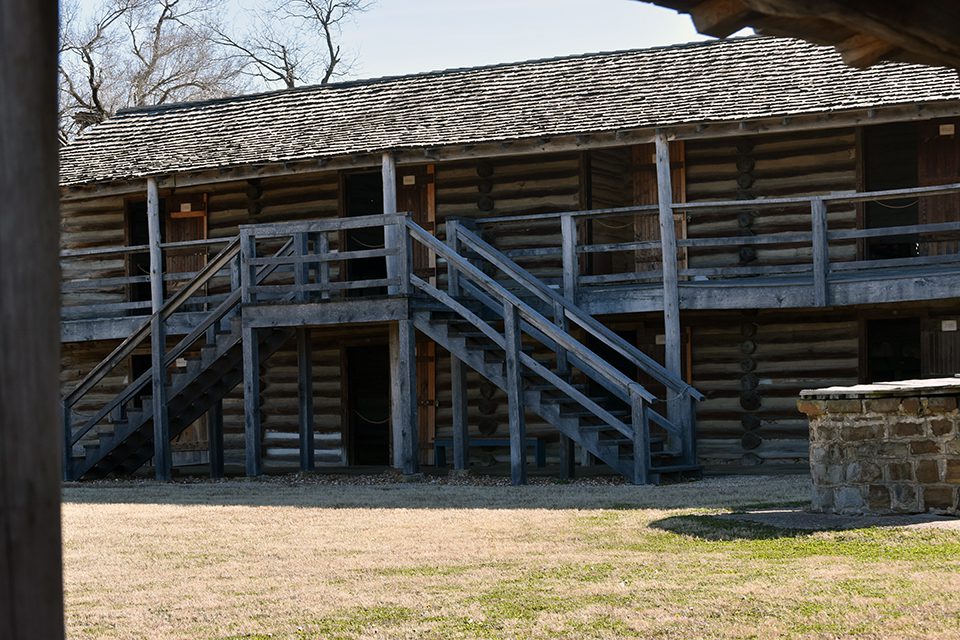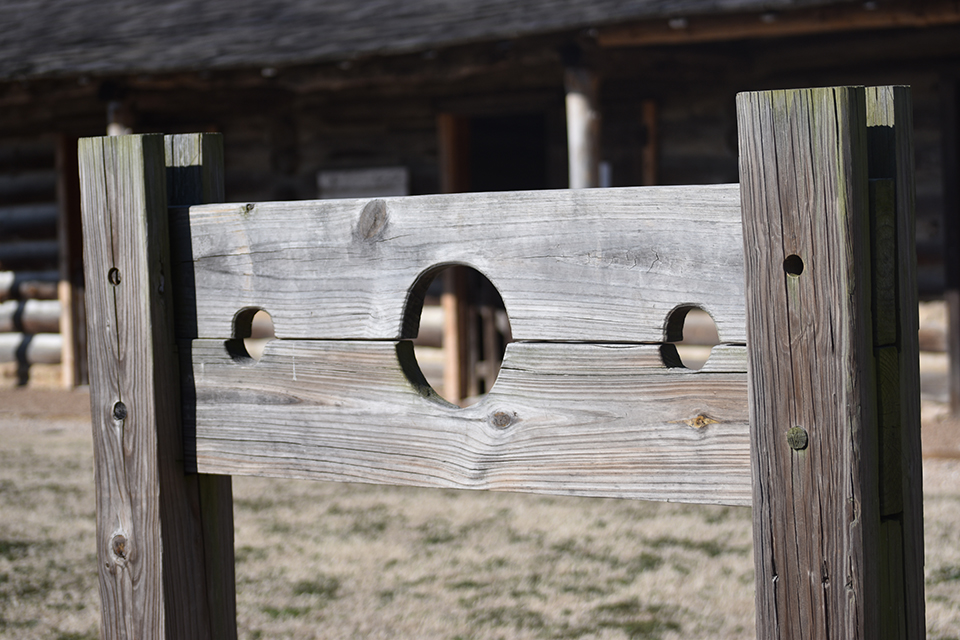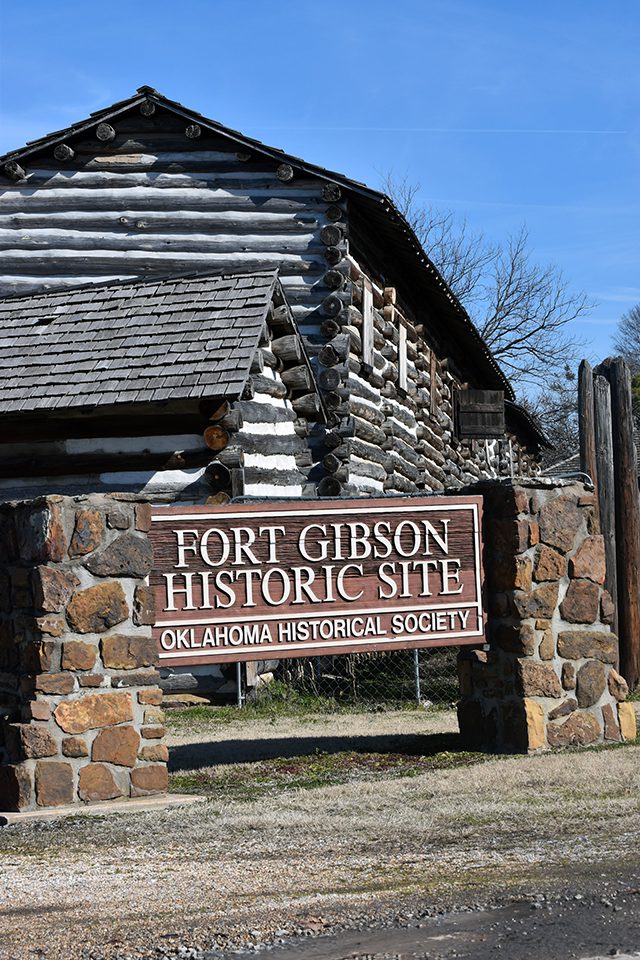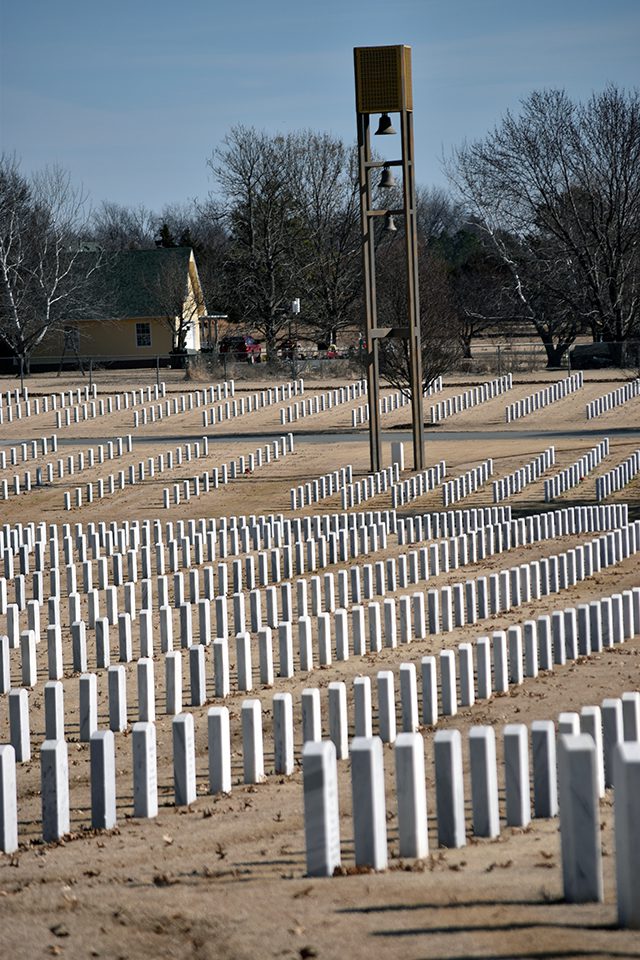Teenagers grab a late breakfast after hunting for waterfowl. Elementary-aged kids race their bicycles down Poplar Street. Adult walkers greet each other on Garrison Avenue. Anglers fish off the old bridge spanning the Neosho (Grand) River.
FUN
FACTS
Population
4,154Oldest town?
In addition to Fort Gibson, which didn’t incorporate until 1893, Choctaw, Salina and Vinita each claim to be the state’s oldest town. Also in the mix is present-day Spiro, which evolved from the ancient Spiro Mounds.State firsts
According to the Fort Gibson Genealogical and Historical Society, the town had Oklahoma’s first telephone, drama theater, steamboat landing, school for the blind, highway to Fort Smith, Arkansas, and interurban transit line (to Muskogee).Texas turn
Before he went south to help liberate and lead the Republic of Texas, Sam Houston married Talihina “Tiana” Rogers, a Cherokee whose family had befriended Houston. They settled near Fort Gibson. She refused to go to Texas and later married two other men. Houston didn’t remarry and was reputed to have never lost his love for her. She is buried at the Fort Gibson National Cemetery.
Saturday mornings define Fort Gibson, where historic, idyllic and geographic realities collide in the self-proclaimed Oldest Town in Oklahoma.
“It’s a perfect place to grow up,” says Teddy Lehman, arguably the greatest athlete to come out of Fort Gibson. “A lot of people don’t understand just how tight-knit a small community like that is.”
It popped up as a settlement adjacent to the original Fort Gibson, built in 1824 as a garrison for fighting and removing Native Americans and “keeping the peace between the Osages and Cherokees,” according to the Oklahoma Historical Society. The organization oversees the fort, reconstructed in 1937 with Works Progress Administration money during the Great Depression.
The fort sits on a bluff overlooking the Neosho, which converges with the Arkansas and Verdigris rivers a few miles downstream. Water and outdoors are essential to the Fort Gibson experience, Lehman says.
“My friends and I got our first jobs picking corn in the river bottoms when we were in eighth grade,” he says. “We’d get up at 5 a.m. and work until about 8. Then we’d blow all that we’d earned on breakfast.
“You’re always near water. You’ve got the three rivers, all the surrounding lakes – Greenleaf, Tenkiller, Fort Gibson. We’d go skiing on the Manard Bayou, which dumps into the Arkansas. You can go hiking in the woods and hills; it’s like the Ozarks.”
After an all-state football career with the Fort Gibson Tigers, Lehman was an All-American linebacker at the University of Oklahoma and played four years professionally with the Detroit Lions before pursuing a sports-radio career.
Lehman, who lives in Goldsby (south of Norman), returns to his hometown as often as possible to see his parents and visit with friends he’s known since he was 4. They keep him humorously humble.
“It doesn’t matter if I went to OU and played in the NFL,” says Lehman, host of a daily program with Norman’s KREF and analyst during Sooner football games. “When I go home, I’m the kid who flipped over the handlebars on my bike. Your friends are always going to remind you of your foul-ups. My life and my friends are frozen in time there.”






















